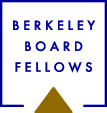 Each year, 10 nonprofit organizations are chosen to participate in our experiential program, Social Sector Solutions (S3). Applications for these 10 slots are currently being accepted. Below is some background information which sheds some light on its mission, structure, and success.
Each year, 10 nonprofit organizations are chosen to participate in our experiential program, Social Sector Solutions (S3). Applications for these 10 slots are currently being accepted. Below is some background information which sheds some light on its mission, structure, and success.
 Q: When the S3 program started, what was the need/opportunity you were responding to?
Q: When the S3 program started, what was the need/opportunity you were responding to?
A: CSSL sees itself as a bridge between mission-driven organizations and leaders looking to use their business skills and expertise to have a positive social impact. Social Sector Solutions provided a vehicle that could meet the needs of these two groups. Nonprofit organizations get the passion, energy, and talent of a team of Cal graduate students, and the students get training from exceptional coaches and management consultant experience.
Q: How is the student team selected for each project?
A: Each consulting team has a CSSL hand-picked team lead. This is a student with previous management consulting experience and/or specific industry knowledge relevant to their project. The other team members fill out a questionnaire detailing their professional experience, personal projects, and other items. The 10 consulting teams are then assembled based on specific skills needed for each project in order to maximize the chances of success.

Q: Who are the key stakeholders (faculty members, practitioners, funds/investors, social change agents)?
A: The program is led and developed by Dr. Nora Silver, Faculty Director and Adjunct Professor at CSSL, and Paul Jansen, Adjunct Professor at Haas and Director Emeritus at McKinsey & Co. Their leadership, tireless dedication, and insight into the skills and experiences necessary to be a successful social sector consultant have shaped S3 into a program that delivers to both nonprofit clients and students.
S3 is funded by client fees, which are applied on a sliding scale based on the nonprofit organization’s budget. This ensures that there is buy-in and accountability on both sides of the program. The student consulting teams negotiate and sign off on the final deliverables, and the nonprofit clients dedicate appropriate executive-level resources to the project.
Q: What are the key focus areas for your program?
A: The 15-week program progresses like a traditional management consulting project. Students are provided with lectures, frameworks, and tools to help their project in its concurrent phase. For example, the first deliverable is a signed Scope of Work letter and the first class discusses how to negotiate a strong project Scope of Work. Later classes include nonprofit financial models, theory of change, consulting communications, and client management, each occurring when the topic is most relevant to the teams.
Q: What are the learning and career outcomes for your students?
A: We have a wide range of anecdotes detailing the positive impact S3 has on students’ lives. Our satisfaction rates for both nonprofit clients and consulting students are high. In 2015, we received an 88% “Yes” response to the question: Do you think that you have acquired the skills or tools needed to effectively serve as a social sector consultant?

 Defining and scoping a project is more art than science. My advice is to start at the end. What is the finished product you want from the Fellows? Is it a PowerPoint presentation of a market analysis for a new fee-based business? Is it recommendations for developing and implementing a social media campaign? Or is it an analysis of an existing line of business that hasn’t been analyzed for “fit” in years? Next, think about the resources you can share with the Fellows that are pertinent to the project. Do you have a financial model you prefer using? Are there existing marketing studies or feasibility reports relevant to the project? And last, frame the project knowing that BBF is, on average, an eight hour/month commitment for the Fellows (inclusive of meeting times) from October – May.
Defining and scoping a project is more art than science. My advice is to start at the end. What is the finished product you want from the Fellows? Is it a PowerPoint presentation of a market analysis for a new fee-based business? Is it recommendations for developing and implementing a social media campaign? Or is it an analysis of an existing line of business that hasn’t been analyzed for “fit” in years? Next, think about the resources you can share with the Fellows that are pertinent to the project. Do you have a financial model you prefer using? Are there existing marketing studies or feasibility reports relevant to the project? And last, frame the project knowing that BBF is, on average, an eight hour/month commitment for the Fellows (inclusive of meeting times) from October – May. The deadline for nonprofit organizations to apply is fast approaching and space is limited. Only 30 nonprofits will be accepted into the Program so complete the
The deadline for nonprofit organizations to apply is fast approaching and space is limited. Only 30 nonprofits will be accepted into the Program so complete the 